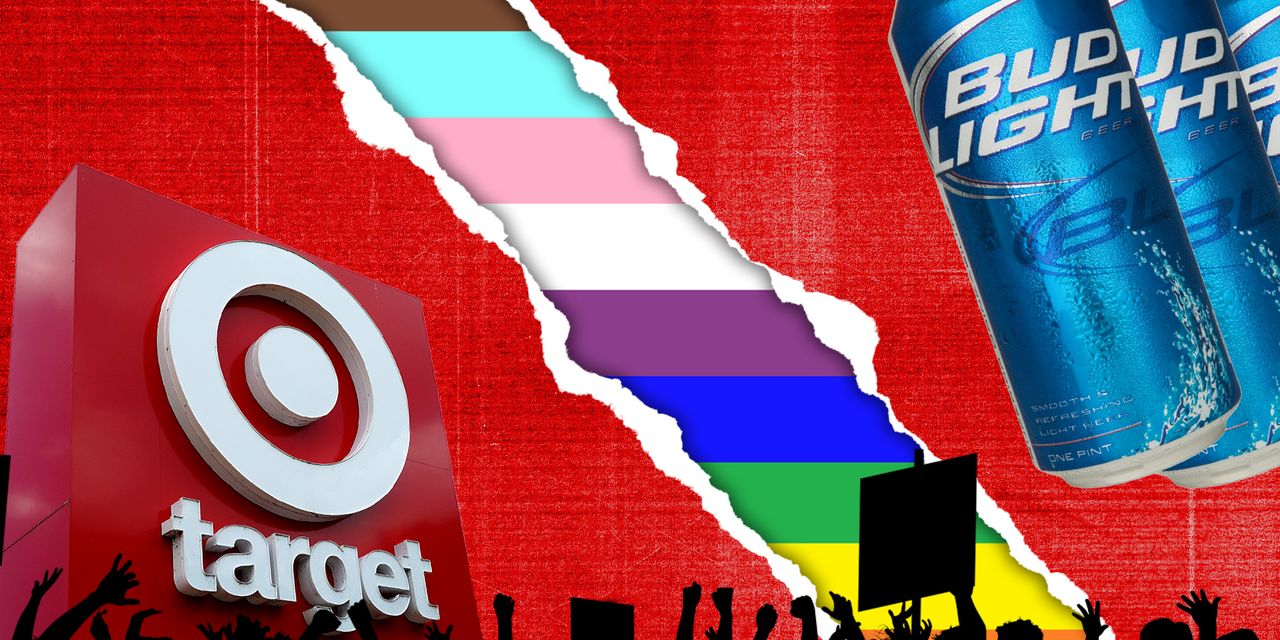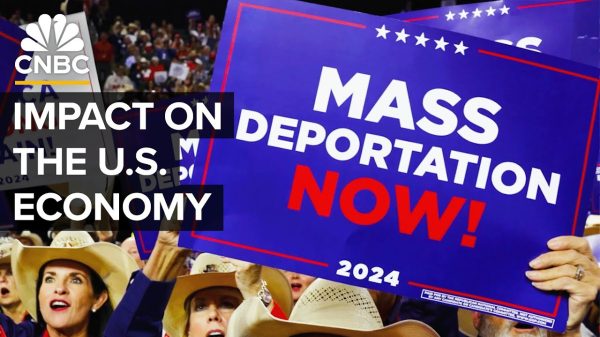At a Rochester, N.Y., block party in the summer of 1964, days after the Civil Rights Act was signed into law, police arrested a 20-year-old Black man on suspicion of intoxication. As local reports described, some in the crowd tried to stop the arrest and authorities escalated, bringing in backup and police dogs. The two-day unrest that followed led to four deaths, hundreds of injuries and arrests, and scars that ran deep into the city’s connective tissue.
In the years that followed, Joseph Wilson, the chairman of Xerox
XRX,
one of the city’s larger employers, met with a local civil-rights leader and joined in a march following Martin Luther King Jr.’s assassination. In a letter to staff in 1968, Wilson said the company and its employees “share the responsibility for a color-divided nation,” and called on managers to make greater efforts to hire and train more Black people. By 1969, the first Black employee caucus group emerged at the company, and efforts at Xerox and other companies through the ’60s helped lay the groundwork for the hiring policies that people know today as diversity, equity and inclusion.
Then, in 1970, the economist Milton Friedman published an essay arguing that the responsibility of a corporation was to grow profits. Any leader whose company dabbled in, say, trying to end discrimination or protect the environment, was practicing “unadulterated socialism” and caving to “intellectual forces” working to undercut free society, Friedman argued. The essay shaped executives’ thinking about their jobs for decades.
Even as many people have expressed outrage this year over Bud Light or Target “wading into politics” or “going woke,” large corporations have expressed support for social causes for as long as the nation has had large corporations, and they likely always will, experts say. For just as long, large corporations have been criticized for doing so, amid a generations-spanning tension between prejudice, profit, principle and corporate power dynamics.
From the archives (March 2023): ‘Woke’ is being used to describe everything and nothing. What does it actually mean?
Companies make these commitments because they make the organization better and attract talent, or because executives want to soften a severe, competitive image or look like they care for financial gain, analysts say. Or they do it because they or their employees actually care, or because they want to stay relevant or avoid embarrassment or lawsuits. Many businesses, in turn, will probably keep stumbling through those efforts, or quietly abandoning them, or disappointing anyone who thought a corporation somehow stood for them — leading to demands for more concerted action as other cultural crises emerge, and perpetuating the cycle.
“There’s always going to be friction,” said Kyle Edward Williams, a historian and the author of the forthcoming book “Taming the Octopus: The Long Battle for the Soul of the Corporation.” “The question is, how do you adjudicate that?”
“Signs of caution among corporate leadership on those commitments have emerged elsewhere, as investors pressure businesses to guard their profits following big gains during the pandemic.”
Executives today are trying to navigate those issues as right-wing outrage against workplace-equity policies and LGBTQ+ support gains greater traction, following already disproportionate harassment against marginalized groups. Conservatives have made inroads in state legislatures, cranked out anti-trans legislation, and notched victories at the Supreme Court.
Following the Supreme Court’s ruling against affirmative action in June, some large businesses reaffirmed their commitment to existing diversity goals. Companies also continued to support Pride-themed events even after a conservative-led boycott of Bud Light and its parent, Anheuser-Busch InBev
BUD,
cut into sales through last month, and a boycott against Target over Pride-themed merchandise weighed on second-quarter sales, reported last week.
Meanwhile, younger consumers, who have yet to amass their full political influence, tend to be more accepting of LGBTQ+ people. One in five Generation Z adults in the U.S. identifies as LGBT. Many others, across generations, have simply never depended on corporations to be their friends.
However, signs of caution among corporate leadership on those commitments have emerged elsewhere, as investors pressure businesses to guard their profits following big gains during the pandemic. And executives aren’t prepared for a new regime of ever-increasing hyperpartisanship pressuring companies to be as opinionated as everyone else, experts say — risking responses that are either tone-deaf or too little, too late.
“That’s a new realm that they’re moving into, which they didn’t have to do before, to take stands on issues,” said Rohini Anand, a DEI advisor whose clients have included Coca-Cola
KO,
Goldman Sachs
GS,
and Procter & Gamble
PG,
‘The Octopus’ and the roots of the ‘social’ corporation
Of course, U.S. companies have participated in politics for a long time. They lobby for policies like lower taxes and deregulation. They donate to politicians in both major parties. They broker rescues when fissures form in one industry or another.
But some of the reasons companies embrace social obligations, as well as some of the current friction over that embrace, can be traced back to the end of the Civil War. The war’s end touched off a rapid expansion in the U.S. economy, and just-as-rapid consolidation. John D. Rockefeller’s Standard Oil tightened its grip on the oil industry. Financiers like J.P. Morgan tightened their grip on seemingly everything else.
Multiple financial “panics” ensued. So-called trusts or virtual monopolies emerged in the oil and railroad industries, and in industries as wide-ranging as beef and sugar. Political cartoons depicted companies like Standard Oil as an octopus, with tentacles reaching into all aspects of American life.
“The octopus imagery became really popular in the early 20th century, because it expressed viscerally and evocatively the sense of danger, in the sense that corporations have so much more power than any individual human being; that there’s something almost animalistic about them,” Williams said.
“What has come along with that is a desire for corporations to be soulful, to take on more social responsibilities — to not simply empower and enrich themselves and their owners, but to participate within society,” he added.
One early form of that participation, or at least an early gesture toward corporate soul-craft, was advertising, he said. Union calls for better working conditions, an eight-hour day and a living wage had grown louder. Ads and spokespeople attempted to put a human face on huge companies with generic or obtuse names; skyscraper offices; and an often ruthless approach to competition, labor and profit.
The birth of DEI and ESG — and where companies get stuck
Still, anxieties grew that the rift between capital and labor would tear the country apart, Williams said. As the century progressed, he said, certain “trappings of paternalism” emerged in corporate upper ranks. Executives themselves began to believe that their companies should be better social stewards. One such executive was Gerard Swope, the president of General Electric for parts of the 1920s, ’30s, and ’40s after briefly living and teaching in a settlement house in Chicago years earlier.
As the century progressed, similar tensions occasionally led to a bigger conversation about social responsibility. The civil-rights movement of the 1960s helped accelerate corporate diversity policy. And as concerns about climate change grew, the current version of ESG — environmental, social and governance policies — gained traction in the early 2000s.
“While backlash tends to land on the higher-ups, the conversation over shaping inclusion policies often starts with company employees.”
Executives themselves eventually began to chip away, a little, at the Friedman doctrine. Even as shareholder buybacks and dividends continued to break records, concerns about the environment and economic inequality grew through the 2010s. In 2019, the Business Roundtable issued a statement saying that the best corporations did more than just churn out profit for investors.
“The American dream is alive, but fraying,” Jamie Dimon, the roundtable’s chairman and chief executive of JPMorgan Chase
JPM,
said in a statement at the time. “Major employers are investing in their workers and communities because they know it is the only way to be successful over the long term.”
A year later, the murder of George Floyd prompted a wave of overtures from executives of big companies vowing to use their resources to combat racism.
But even in the decades before Floyd’s murder, those efforts — whatever the degree of good executive intentions — have often been an evolution of bare minimums, DEI consultants have suggested.
From the archives (April 2023): Three years after companies doubled down on DEI, ‘the pendulum swings back.’ Here’s why.
Through the ’80s and ’90s, organizations thought of hiring people of color in terms of representational targets, mandated or not, and tended to think those were enough. But leadership, likelier to be white and to think of racism in more generic terms, found itself flat-footed whenever those hires left after encountering racism within the organization or limited opportunity for promotion. In the 2010s, the “Lean In” brand of career acceleration also came up short, with critics arguing it downplayed structural problems working women face.
“There was lots of talk about what people should be doing, especially women and minorities, to elevate their careers,” said Ella Washington, a DEI expert, author and organizational psychologist. “There was less talk at the time about what organizations should be doing.”
Progress on corporate inclusion can be categorized into five stages, Washington has said: The first, “awareness,” is often a shock to the system, like a lawsuit. The second, “compliance,” is a matter of following the law or voluntary goals. The third and fourth, “tactical” and “integrated,” are a matter of making DEI a foundation for business decisions.
In the last stage, “sustainable,” companies remain inclusive despite changes in leadership and the economy. One example in this category, Washington said in a Harvard Business Review article, was Intel
INTC,
whose DEI commitments weathered multiple leadership shakeups.
A company’s efforts are more likely to be performative when it’s unwilling to set specific goals or just wants to hold a single seminar, or when managers say they just want to “be better,” she told MarketWatch. And many efforts, performative or not, stall at the compliance stage, she said.
“Companies get stuck there often,” she said. “Often, they just get stuck at ‘check the box.’”
While backlash tends to land on the higher-ups, the conversation over shaping inclusion policies often starts with company employees, consultants say. And those employees are often starting those conversations despite the risk of retaliation, or barriers that cloud the ground-level view of a company from the C-suite, where leadership’s thinking might be more shaped by the news.
“In this time, it also becomes more important for organizations to do this work well and really look at it as a cultural transformation, and not just a response to external events,” Anand said.
Why the war on DEI is gaining traction now
Conservatives cheered the Supreme Court’s late-June decision to end affirmative action in colleges. But it will likely narrow the path for applicants of color to corporate leadership roles, human-resources experts say.
Apple
AAPL,
General Electric
GE,
Kraft Heinz
KHC,
and several dozen other large companies had signed an amicus brief in support of race-conscious college-admissions policies, saying that diversity made their companies better. Research supports that claim. After the ruling, 13 attorneys general from conservative states urged Fortune 100 executives in a letter last month to “immediately cease any unlawful race-based quotas” or hiring practices.
Read more: Supreme Court ended affirmative action at colleges. That could harm companies’ diversity efforts.
Even before the ruling and the red-state warning, statistics on diversity in corporate leadership weren’t great. A recent Columbia Business School study of government contractors’ workforce demographics found that despite businesses’ expressed commitments to DEI, racial minorities comprised 28% of middle managers, with Black employees making up only 4%.
A recent survey of tech-industry hiring leaders, from the recruiting service Hired, found signs of a retreat from DEI. And at Disney
DIS,
which Florida Gov. Ron DeSantis has made a central target in his war on what he calls “woke capitalism,” the percentage of people of color within its U.S. ranks has only ticked modestly higher since 2019. Disney did not respond to a request for comment.
Vanderbilt University Chancellor Daniel Diermeier, who has advised companies on how to manage their reputations, said DeSantis’s fight with Disney — which began after its CEO criticized the state’s restrictions on discussing sexual orientation and gender identity in schools — helped open the door to a bigger conservative onslaught against corporations. Years of polarization can lead to spontaneous combustion in the discourse, he added.
“This adds much more venom to the confrontation,” Diermeier said. “It puts cultural issues front and center, and they can blow up over anything right now. And what companies are not recognizing is that there is no more consensus on [DEI] or ESG.”
Calls for a boycott of Bud Light began in April after the brand ran a brief promotional partnership with Dylan Mulvaney, a trans influencer. Retailers like Target
TGT,
and Kohl’s
KSS,
received similar attacks on their Pride-themed merchandise, and Target eventually pulled some Pride-themed merch amid the uproar.
Why those efforts appeared to gain more traction this year depends on who you ask.
Some activists have said the boycott efforts were coordinated. Others suggest anger at Black Lives Matter, a broader anti-trans movement among social conservatives, and anti-LGBTQ+ legislation have made it easier for people to publicly express bigotry — or at least an irritation or fatigue with progressive corporate gestures — that had long festered privately. Still others say right-wing activists have honed the pressure tactics long used by the left.
Meanwhile, a recent New York Times op-ed argued that the country’s politics, as lawmakers increasingly concoct narrowly focused legislative attacks from behind gerrymandered lines, has become less responsive to voters’ actual concerns. Thus, it said, it’s “easier for us to hold corporations accountable than politicians,” and more is expected of businesses as governments increasingly fail their constituents.
Calls for meaningful action reach a ‘crescendo’
Imara Jones, an expert on anti-trans extremism, told MarketWatch in May that the political right, after serving business interests for decades, was caught off guard when businesses expressed support for left-leaning causes. But for the left, she said, that support hasn’t always been there when it mattered, leading to greater frustrations.
“As we know, a lot of times, that marketing is performative,” she said. “For the [LGBTQ+] community, as it comes under more pressure, it’s demanding that these brands not only have a float parade, or not only slap a rainbow on their products during this time of year, but that you actually are showing up for us — you’re actually speaking up for us, you’re actually hiring us, you’re actually sending part of your charitable contributions to our organizations.”
That call for more meaningful action has been growing louder for years, she said, “and it’s reaching a crescendo now, because the community is coming under extreme attack.”
Smaller businesses, and businesses that make their politics clear from the outset, tend to have an easier time committing to their principles without much financial consequence, analysts have said.
For instance, Nike’s
NKE,
online sales briefly spiked after it stood by Colin Kaepernick, following backlash to its 2018 ad campaign with the former NFL quarterback. That stance worked in part because Nike, to some degree, has always been about representing athletes, Diermeier said.
The dynamics for Bud Light and Disney are different. Bud Light prolonged the boycott after issuing a response that, some have said, tried to have it both ways and ended up standing for nothing. And Diermeier noted that committing to a boycott of Bud Light or Target — which only requires buying a different beer or going to a different store — was relatively easy. Boycotting Disney World, he said, is more difficult because there are far fewer alternatives.
Still others point out that the success of the Bud Light boycott was rare, and that corporate support for Pride largely stayed intact this year. Some 78% of U.S. Pride organizers surveyed by InterPride, a global Pride events network, “said their corporate sponsorships either rose or held steady since last year,” according to NBC News.
“‘We forgave corporates during the AIDS crisis for not speaking up. We forgave them again during [the fight for] marriage equality. … I think three strikes, you’re out.’”
Sarah Kate Ellis, the chief executive of the LGBTQ+ advocacy group GLAAD, also told MarketWatch that corporate support for Pride-themed events this year was stable, with no increase or decrease. But she did say that businesses weren’t speaking up in support of LGBTQ+ rights as much as they used to.
Bud Light and Target, which have been partners of GLAAD for years, helped propel the boycott drives against them because they tried to placate extremists who weren’t looking to be placated in the first place, she said. Part of the mistake some executives make, she said, is viewing certain issues as “political” when they’ve actually been politicized by extremists.
An Anheuser-Busch spokesperson said the company remained “committed to the programs and partnerships we have forged over decades with organizations” to serve a variety of people, including LGBTQ+ people. The company also pointed to the extension of Bud Light’s partnership with the National LGBT Chamber of Commerce, a business advocacy group with dozens of large corporate partners, and a $200,000 donation to the group.
Target did not respond to a request for comment. Chief Executive Brian Cornell, during the company’s earnings call last week, said “we denounce violence and hate of all kinds” and that the retailer would continue to support events like Pride. While he said the company had sold Pride merchandise for more than a decade, he noted an “ever-changing operating and social environment” and said it was “reconsidering the mix” of its product assortments. The retailer’s executives said the boycott hurt sales, but said it wasn’t possible to quantify the impact.
The thinking on what a corporation should be is shifting back to a “shareholder mentality,” Ellis said, similar to the one Friedman described more than 50 years ago. But after decades of waiting on businesses to offer more genuine backing, patience is running thin, she added, suggesting her organization would draw a harder line on working with companies that waffle on their LGBTQ+ support.
“We forgave corporates during the AIDS crisis for not speaking up,” Ellis said. “We forgave them again during [the fight for] marriage equality. … I think three strikes, you’re out.”
Read the full article here













